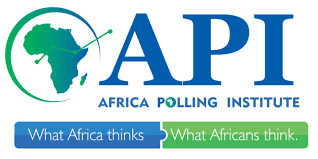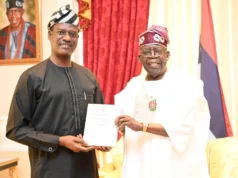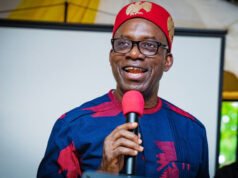In a landmark move toward understanding and strengthening Nigeria’s social fabric, the Africa Polling Institute (API) has officially launched its 2025 Nigeria Social Cohesion Data Report in Abuja. Supported by the Ford Foundation, this critical initiative—aptly themed “Rebuilding Citizens’ Trust and Public Confidence in Government and Public Institutions”—delivers a rich dataset illuminating the complexities of trust, unity, and inclusion across ethnic, religious, and socioeconomic lines.
Table of Contents
A New Chapter in Nigeria’s Social Insights
Since 2019, API has been at the forefront of gauging national cohesion. What began as a one-time survey has evolved into an invaluable annual tool tracking shifting attitudes over time. With successive editions, including the inaugural 2019 and follow-ups in 2020 and beyond, the 2025 report marks a critical phase, offering deeper, more nuanced insights into public sentiment across Nigeria.
This edition, the fourth in the series, delves into themes such as:
- Trust in government and public institutions
- Perceptions of justice and fairness
- Evolving identities beyond ethno-religious boundaries
- Levels of civic engagement and social solidarity
Why This Survey Matters
Diagnosing Nigeria’s Trust Deficit
API’s 2025 findings highlight a worrying trend: Nigerians continue to place greater trust in traditional and religious leaders than in the government—an insight capital for policy-makers and media houses striving to shift the narrative. Further, perceptions of the justice system as skewed in favour of the elite compound public anxiety, deepening the trust deficit.
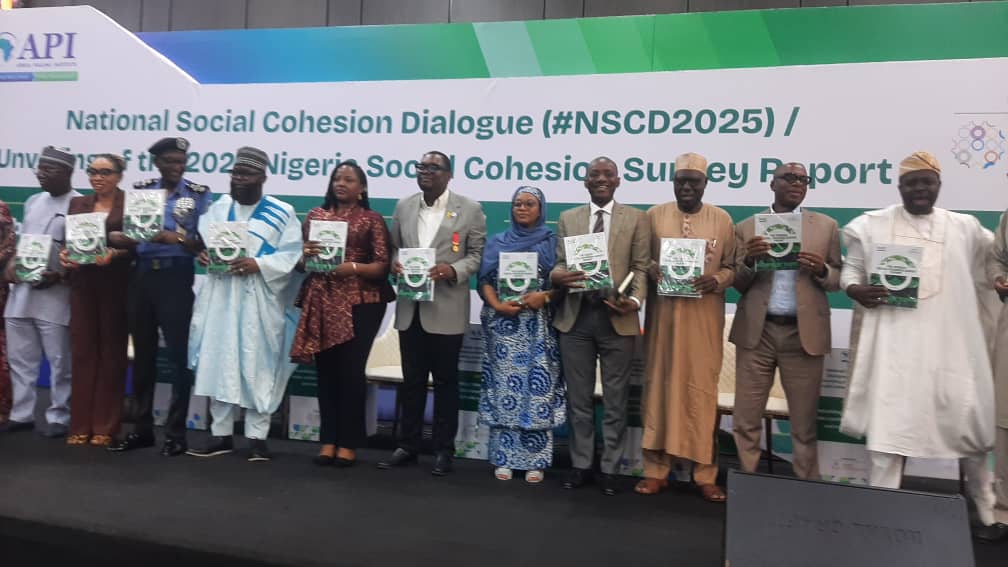
Bridging Diverse Identities
In a country as richly diverse as Nigeria, forging a cohesive national identity remains challenging. Stakeholders at the launch emphasized the need to transcend tribal, religious, and regional divisions. As Prof. Bell Ihua of API remarked, “We must begin to see ourselves as Nigerians first.” Achieving this requires consistent dialogue and civic engagement to reinforce shared national values.
Spotlight on Civic Participation
Another central theme is the lack of robust civic engagement. Many citizens feel disconnected from national governance—not due to apathy, but from institutional failure. The report sharply outlines how this disconnect leads to exclusion, undermining opportunity and threatening long-term progress.
Voices at the Launch
Prof. Bell Ihua (API CEO)
At the Abuja unveiling, Prof. Ihua highlighted the purpose of the 2025 report: “To provide a clear snapshot of citizens’ levels of trust in both government and civic institutions… and how economic hardships are shaping collective consciousness.”
Dr. Kayode Fayemi (Chair, Launch Event)
Represented by Ahmed Surajo, Dr. Fayemi acknowledged that national cohesion transcends politics—it is the foundation of social harmony, economic progress, and democratic integrity.
Rotimi Amaechi (Former Governor)
Emphasising personal accountability, Amaechi urged citizens not to “outsource responsibility” but to actively engage in nation-building efforts themselves.
Dr. Chichi Aniagholu (Ford Foundation, West Africa)
As API’s key partner, the Ford Foundation’s regional director reiterated the power of data-driven change: “You need a society that trusts the system, trusts each other, and trusts in the future… perception often drives reality.”
From Data to Action: What Comes Next
API’s survey isn’t merely academic. The goal is to provide air-tight evidence that can spark meaningful policy responses:
- Strengthening government transparency to rebuild institutional trust.
- Reforming the justice system to make it fair, accessible, and seen to be fair.
- Promoting inclusive civic education, highlighting shared identity.
- Fostering partnerships across sectors, ensuring data informs healthcare, education, security, and economic leadership strategies.
Prof. Ihua stressed that next year’s survey should reflect visible progress and shortcomings, tracking change year over year.
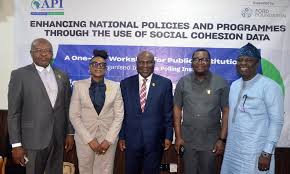
Media’s Role: Storytelling That Unites
Ahead of the report, a workshop helped journalists harness the data effectively. The training focused on narrative-driven coverage—balancing nuance, context, and solution orientation. As media trainer Odoh Okenyodo noted, “How we frame stories matters greatly, especially on identity-sensitive topics.”
Journalists were urged to avoid sensationalism and instead deepen public understanding through investigative and constructive reporting—a strategy essential for decay-proofing social trust.
What the Data Reveals: Key Highlights
While full data tables are confidential, several high-impact findings were publicly shared:
- Widespread belief that justice is accessible mainly to the wealthy.
- Heightened reliance on religious/traditional leadership over civil institutions.
- Economic strain is a central unifier—citizens across divides feel the impact of inflation, insecurity, and living costs.
- A persistent ethnic bias informs views on political appointments and fairness.
Challenges & Opportunities Ahead
Reflecting Reality, Inspiring Hope
A standout insight: feelings of distrust often outpace factual evidence. The Ford Foundation warns that managing perception is as critical as managing reality. This presents a dual opportunity: rebuilding trust and resetting expectations through transparent communication.
Data as a Bridgebuilder
With its comprehensive, multi-year data design, the API report is poised to become Nigeria’s public conscience for trust and cohesion. If adopted strategically, it can shape policymaking, public communication, and project implementation.
Sustained Policy Engagement
API’s ambition extends beyond one-off surveys—it aims to embed this data into lasting national processes: budgeting, education reform, justice sector improvements, and economic planning. The ultimate benchmark will be tangible improvements in citizens’ lives.
The Road Ahead: What to Expect
As the dust settles on the 2025 launch, stakeholders are looking ahead:
- Policy dialogues involving government ministries, lawmakers, civil society, and communities.
- Academic research using the data to formulate university-led cohesion projects.
- Media-driven campaigns fostering interfaith, inter-ethnic understanding, and civic pride.
- Community-level engagements using data insights to boost participation in local governance.
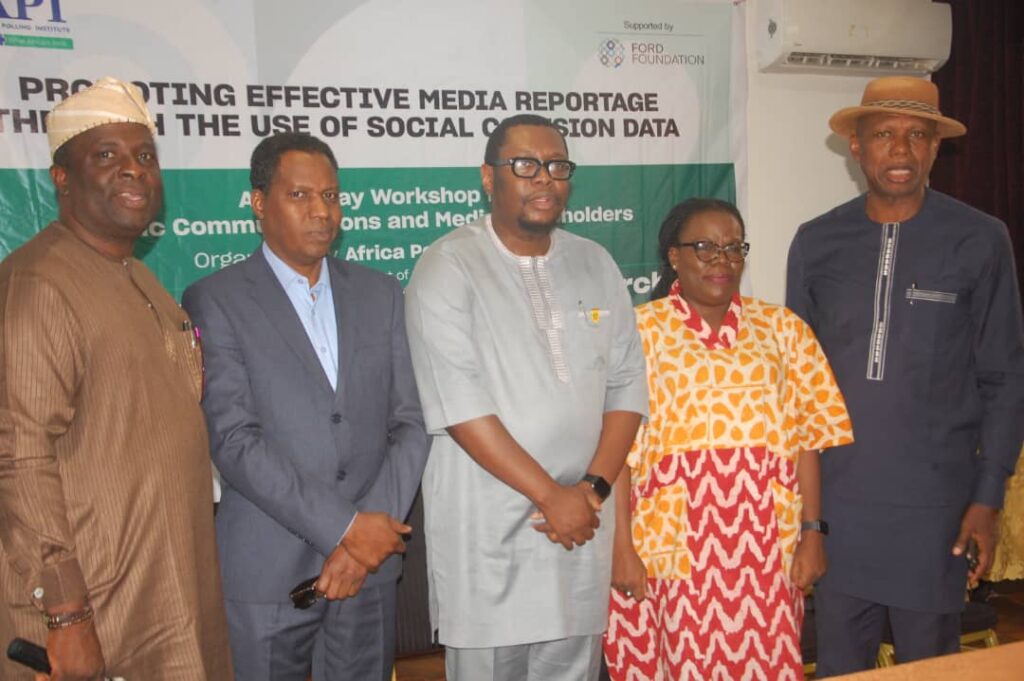
Final Thoughts
When API Launches Nigeria’s 2025 Data Survey, it signals more than just data publication—it ignites a national call to reconstruct trust, reforge unity, and reclaim hope in public institutions. In a nation where diversity is both a strength and a challenge, this report marks a critical step toward informed policy, inclusive conversation, and cohesive citizenship. For the average Nigerian, it can be the beginning of a renewed social contract grounded in facts, empathy, and accountability.
Join Our Social Media Channels:
WhatsApp: NaijaEyes
Facebook: NaijaEyes
Twitter: NaijaEyes
Instagram: NaijaEyes
TikTok: NaijaEyes


